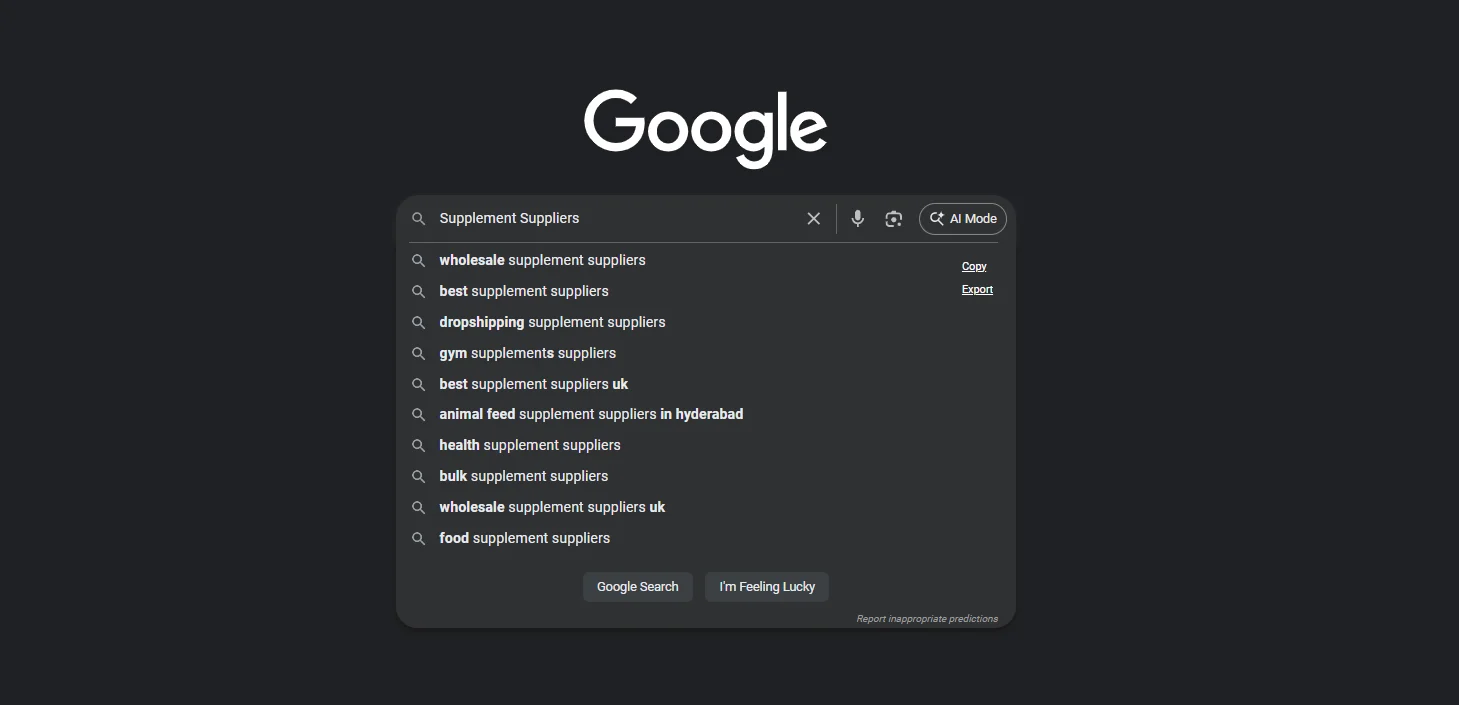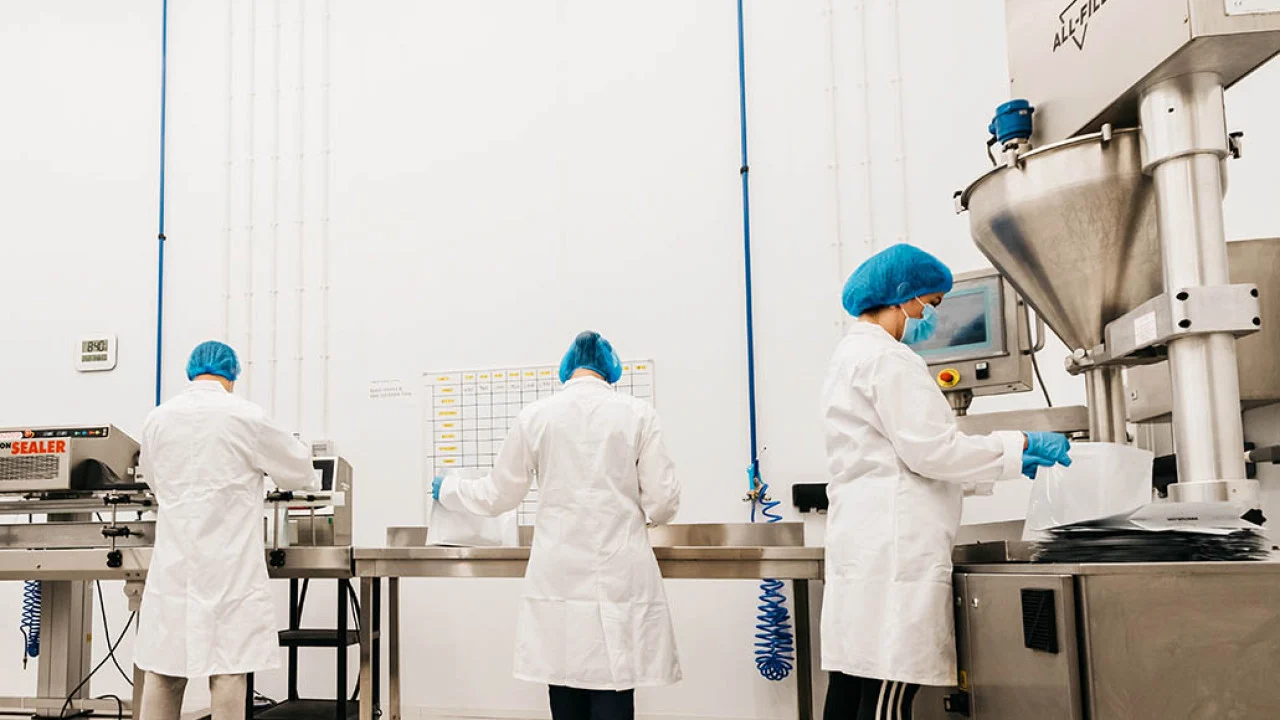You have a vision for a groundbreaking supplement brand. You’ve identified a niche, imagined the branding, and can already picture your product on the shelf. But the most critical step—and the one that often feels the most daunting—is finding a partner to bring it to life.
Choosing a supplement supplier is more than a simple transaction. This decision is the foundation of your business. A great supplier delivers a safe, effective, and high-quality product every time, building customer trust and loyalty. A bad one can sink your brand before it ever sets sail, leading to quality issues, legal troubles, and a damaged reputation.
This guide will walk you through every step of the process. You’ll learn how to understand your manufacturing options, where to find potential partners, what critical questions to ask, and which red flags to watch out for. By the end, you’ll be equipped to choose a supplier who will be a partner in your long-term success.

Step 1: Understand Your Manufacturing Options
Before you can find the right partner, you need to know what kind of partnership you’re looking for. In the supplement industry, there are two primary manufacturing models: Private Label and Contract Manufacturing.
Option A: Private Label (White Label) Manufacturing
What it is: Private label manufacturing involves choosing from a supplier’s catalog of pre-existing, market-tested formulas and putting your brand’s label on them. The supplier has already done the research, development, and formulation.
- Плюсы:
- Low Minimum Order Quantity (MOQ): Suppliers produce these formulas in bulk, allowing you to start with a smaller order.
- Fast to Market: Since the formula is already developed, you can launch your product in weeks, not months.
- Lower Startup Cost: You avoid the significant investment required for custom formulation and testing.
- Proven Formulas: You’re using products that are already tested for stability and efficacy.
- Конс:
- Little to No Differentiation: Your product will be identical or very similar to other brands using the same supplier.
- You Don’t Own the Formula: You have no intellectual property (IP) rights to the product you’re selling.
- Лучшее для: Startups on a tight budget, influencers wanting to launch a product line quickly, or brands looking to test a new market with minimal risk.
Option B: Contract Manufacturing (Custom Formulation)
What it is: Contract manufacturing is when you hire a manufacturer (the “contractor”) to produce your unique, proprietary formula. You provide the formula, and they handle the sourcing, blending, and production according to your exact specifications.
- Плюсы:
- You Own the Formula (IP): The formula is your intellectual property, giving you a valuable business asset.
- Complete Product Differentiation: Your product is 100% unique in the marketplace.
- Full Control: You have complete control over every ingredient, dosage, and quality parameter.
- Конс:
- Higher Minimum Order Quantity (MOQ): Production runs are dedicated to your product, requiring a larger initial order.
- Higher Cost: Custom sourcing, formulation, and testing lead to a higher per-unit cost and significant upfront investment.
- Longer Development Time: The process from concept to finished product can take many months.
- Лучшее для: Established brands, well-funded startups with a unique product concept, or practitioners who have developed a specific, effective formula.
Decision Helper: A Quick Comparison Table
| Характеристика | Private Label | Contract Manufacturing |
|---|---|---|
| Startup Cost | Low | High |
| Time to Market | Fast (Weeks) | Slow (Months) |
| MOQ | Low | High |
| Differentiation | Low | High |
| IP Ownership | None | Full Ownership |
Step 2: Where to Find Potential Supplement Suppliers
Once you know which model fits your business, it’s time to start searching. Here are the most effective channels for finding potential partners.
Online B2B Marketplaces
Platforms like ThomasNet, MakersHub, and specialized industry directories are excellent starting points. They allow you to filter suppliers by capability, location, and certifications. While platforms like Alibaba can be used, proceed with extreme caution and conduct thorough due diligence, as quality and regulatory compliance can vary widely.
Industry Trade Shows
Events like SupplySide West (in the US) and Vitafoods (in Europe) are invaluable. They bring thousands of raw material suppliers, manufacturers, and packaging companies together under one roof. Attending allows you to have face-to-face conversations, compare dozens of potential partners in a single day, and build personal connections.
Strategic Google Searches
Don’t just search for “supplement supplier.” Use specific, long-tail keywords to narrow your results. Try queries like:
"sports nutrition contract manufacturer USA""low moq private label vitamins""organic supplement supplier cGMP certified""gummy vitamin manufacturer"

Professional Networks and Referrals
Leverage your network. Ask for recommendations on LinkedIn in relevant industry groups or consult with a supplement industry consultant. A referral from a trusted source can be the best lead you’ll get.
Step 3: The Ultimate Vetting Checklist: 15 Questions to Ask Every Potential Supplier
Finding a list of potential suppliers is easy. Vetting them is the hard part. Treat this process like a job interview for the most important role in your company. Here are 15 essential questions to ask.
Category 1: Certifications and Compliance
This is non-negotiable. It ensures they operate legally and safely.
- Are you FDA-registered and cGMP compliant? Ask for a copy of their cGMP (Current Good Manufacturing Practices) certificate. This is the baseline requirement.
- Do you hold other key certifications? Look for valuable third-party certifications like NSF International, USDA Organic, Non-GMO Project Verified, или Informed-Sport, depending on your brand’s positioning.
- Can you provide a Certificate of Analysis (COA) for both raw materials and finished products? A refusal to do so is a major red flag. This proves their commitment to quality control.

Category 2: Production Capabilities and Capacity
This ensures they can actually make your product effectively.
- Каково ваше минимальное количество заказа (MOQ)? Make sure it aligns with your budget and sales projections.
- What are your typical lead times for production? This is crucial for managing your inventory and cash flow.
- What types of products do you specialize in? A supplier that specializes in powders may not be the best choice for complex gummies or tinctures.
- Can you handle our projected growth? You need a partner who can scale with you, not one you’ll outgrow in a year.
Category 3: Quality Control and Testing
This is how you protect your customers and your brand.
- What is your process for third-party testing? Do they test every batch? Which labs do they use?
- How do you handle a batch that fails testing? A good supplier will have a clear, documented process for quarantining and investigating out-of-spec products.
- How do you ensure supply chain transparency and ingredient traceability? They should be able to trace every ingredient in your product back to its source.
Category 4: Services and Support
These factors determine how easy they are to work with.
- Do you offer in-house formulation or R&D support? This is crucial if you are developing a custom formula.
- Do you provide packaging and labeling services? A turnkey solution that includes this can save you significant time and hassle.
- Who will be my main point of contact? Having a dedicated account manager is far better than being routed through a generic customer service line.
Category 5: Business and Finance
This ensures the business relationship is sound.
- Can you provide references from other clients? Speaking to other brands they work with is one of the best forms of due diligence.
- What are your payment terms? Understand the payment schedule (e.g., 50% upfront, 50% on completion) to manage your finances.
Red Flags: Warning Signs to Watch Out For
During your vetting process, be alert for these warning signs:
- Vague answers or refusal to provide documentation: If a supplier can’t or won’t provide their cGMP certificate or a sample COA, walk away. Transparency is not optional.
- Unusually low pricing: If a quote seems too good to be true, it probably is. This could indicate they are cutting corners on ingredient quality, testing, or compliance.
- Poor communication: Slow response times, unanswered questions, or disorganized communication during the sales process are a preview of what you’ll experience as a client.
- No clear process for quality control: If they can’t clearly explain their testing and quality assurance procedures, they don’t have a strong system in place.
- High-pressure sales tactics: A good partner will work with you. A supplier who pressures you to sign a contract quickly may be hiding something.
Часто задаваемые вопросы (FAQ)
How much does it cost to start a supplement line?
It varies dramatically. A private label launch can start from $5,000 – $10,000, covering initial inventory, basic branding, and website setup. A custom formulation is a much larger investment, often requiring $25,000 – $50,000+ to cover R&D, stability testing, and a higher MOQ.
Should I choose a domestic or overseas supplier?
There are pros and cons to both. Domestic (e.g., US-based) suppliers generally offer higher quality control, easier communication, faster shipping, and clear regulatory oversight, but at a higher cost. Overseas suppliers may offer lower costs but can present challenges in communication, quality assurance, shipping delays, and navigating different regulatory landscapes. For startups, starting domestic is often the safer choice.
Do I need a lawyer to review the manufacturing agreement?
Absolutely, yes. This is especially critical for custom formulations. A lawyer will ensure your intellectual property is protected, liability is clearly defined, and the terms of the agreement are fair. It’s a small investment that can save you from huge problems down the road.
Conclusion: Your Supplier Is Your Most Important Partner
Choosing a supplement supplier is the most important decision you’ll make as a brand owner. It’s a strategic choice that goes far beyond cost per bottle. Your brand’s reputation, your customers’ safety, and your long-term success all depend on this partnership.
Take your time. Follow the steps in this guide: know your model, do your research, and vet every potential partner meticulously using the checklist provided. The right partner will not only produce a high-quality product but will also be a key ally in building a trusted and successful brand.


